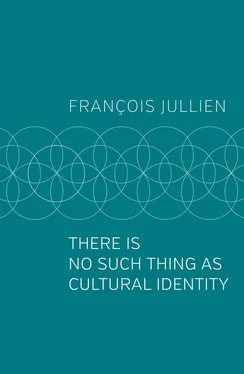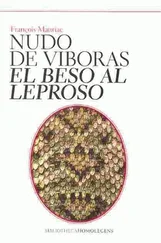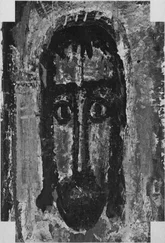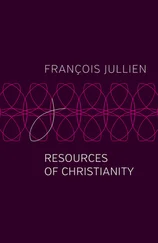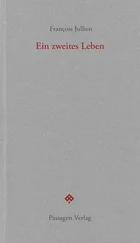1 Cover
2 Title Page There Is No Such Thing as Cultural Identity François Jullien Translated by Pedro Rodriguez polity
3 Copyright
4 Preface Translator’s Notes
5 I The universal, the uniform, the common Translator’s Notes
6 II Is the universal an outmoded notion? Translator’s Notes
7 III Difference or divide: identity or fecundity Translator’s Notes
8 IV There is no such thing as cultural identity Translator’s Notes
9 V We will defend a culture’s resources Translator’s Notes
10 VI From divides to the common Translator’s Notes
11 VII Dia-logue Translator’s Notes
12 End User License Agreement
1 Cover
2 Table of Contents
3 Title Page
4 Copyright
5 Preface
6 Begin Reading
7 End User License Agreement
1 iii
2 iv
3 vi
4 vii
5 viii
6 1
7 2
8 3
9 4
10 5
11 6
12 7
13 8
14 9
15 10
16 11
17 12
18 13
19 14
20 15
21 16
22 17
23 18
24 19
25 20
26 21
27 22
28 23
29 24
30 25
31 26
32 27
33 28
34 29
35 30
36 31
37 32
38 33
39 34
40 35
41 36
42 37
43 38
44 39
45 40
46 41
47 42
48 43
49 44
50 45
51 46
52 47
53 48
54 49
55 50
56 51
57 52
58 53
59 54
60 55
61 56
62 57
63 58
64 59
65 60
66 61
67 62
68 63
69 64
70 65
71 66
72 67
73 68
74 69
75 70
76 71
77 72
78 73
79 74
80 75
81 76
There Is No Such Thing as Cultural Identity
François Jullien
Translated by Pedro Rodriguez
polity
Originally published in French as Il n’y a pas d’identité culturelle © Editions de l’Herne, 2016. Published by arrangement with Agence littéraire Astier-Pécher. ALL RIGHTS RESERVED.
This English edition © 2021 by Polity Press
Polity Press
65 Bridge Street
Cambridge CB2 1UR, UK
Polity Press
101 Station Landing
Suite 300
Medford, MA 02155, USA
All rights reserved. Except for the quotation of short passages for the purpose of criticism and review, no part of this publication may be reproduced, stored in a retrieval system or transmitted, in any form or by any means, electronic, mechanical, photocopying, recording or otherwise, without the prior permission of the publisher.
ISBN-13: 978-1-5095-4700-5
A catalogue record for this book is available from the British Library.
Library of Congress Cataloging-in-Publication Data
Names: Jullien, François, 1951- author. | Rodríguez, Pedro, 1974 March 24- translator.
Title: There is no such thing as cultural identity / François Jullien ; by Pedro Rodriguez.
Other titles: Il n’y a pas d’identité culturelle. English.
Description: Cambridge ; Medford, MA : Polity Press, [2021] | “Originally published in French as Il n’y a pas d’identité culturelle (c) Editions de l’Herne, 2016.” | Includes bibliographical references. | Summary: “A powerful critique of our preoccupation with identity and difference”-- Provided by publisher.
Identifiers: LCCN 2020041249 (print) | LCCN 2020041250 (ebook) | ISBN 9781509546985 (hardback) | ISBN 9781509546992 (paperback) | ISBN 9781509547005 (epub) | ISBN 9781509547036 (pdf)
Subjects: LCSH: National characteristics, French. | Group identity--France. | Nationalism--France. | Social values--France.
Classification: LCC DC34 .J8513 2021 (print) | LCC DC34 (ebook) | DDC 306.0944--dc23
LC record available at https://lccn.loc.gov/2020041249
LC ebook record available at https://lccn.loc.gov/2020041250
The publisher has used its best endeavours to ensure that the URLs for external websites referred to in this book are correct and active at the time of going to press. However, the publisher has no responsibility for the websites and can make no guarantee that a site will remain live or that the content is or will remain appropriate.
Every effort has been made to trace all copyright holders, but if any have been overlooked the publisher will be pleased to include any necessary credits in any subsequent reprint or edition.
For further information on Polity, visit our website: politybooks.com
France’s next election campaign, 1they tell us, will come down to “cultural identity.”
It will turn on such questions as: Shouldn’t we defend France’s “cultural identity” against the self-segregation of various communities? 2and Where do we draw the line between tolerance and assimilation, acceptance of differences and identitarian demands?
This is a debate that is occurring throughout Europe and, more generally, concerns the relationship between cultures within the schema of globalization.
But I think it starts with a conceptual error. It cannot be a matter of culture-isolating “differences” but of divides [ écarts ] that keep cultures apart but also face to face, in tension, and thereby promote a common [ du commun ] between them. This is a matter not of identity, as cultures by their nature shift and transform, but of fecundities, or what I will call resources.
Rather than defend any French cultural identity, as anything of the sort would be impossible to identify, I will defend French (European) cultural resources – “defend” meaning not so much protect as exploit. Resources arise in a language just as they do within a tradition, in a certain milieu and landscape. Once we understand this such resources become available to all and no longer belong [ n’appartiennent pas ]. Resources are not exclusive, in the manner of “values”; they are not to be “extolled” or “preached.” We deploy them or do not, activate them or let them fall into escheat. For this each of us bears responsibility.
A conceptual shift of this kind requires us to head upstream and redefine three rival terms – the universal, the uniform, the common – to draw them out of their equivocalness. In like manner, it will behoove us to head downstream and rethink the “dia-logue” of cultures: dia from divide [ écart ] and progress [ cheminement ], 3 logos from the common of the intelligible. For it is the common of the intelligible that yields the human.
Should we confuse our concepts we will bog down in a false debate, head straight away for an impasse.
1 1. This book was written prior to the 2017 French presidential election – Ed.
2 2. A sociological phenomenon known in France as communautarisme. [All notes by the translator unless otherwise specified.]
3 3. I.e., progress in the sense of heading down a path.
I The universal, the uniform, the common
We should specify our terms on entering this debate, lest we flounder about. There are three rivals: the universal, the uniform, and the common. These are easily conflated, but we must also strip each of its attendant equivocality. Sitting atop our triangle is the universal , for which we must distinguish two meanings, or else fail to understand both the reasons for its trenchancy and its societal import. One meaning of the universal we will call weak, a matter of observation, limited to experience. Such-and-such, as we have been able observe until now, has always been as it seems. This is the general sense. It poses no problem and is in no way striking. But the universal has a strong meaning as well: that of strict or rigorous universality. We in Europe have made this sort of universality into a requirement of thought. We presume from the start, before seeking any confirmation from experience, or even dispensing with confirmation altogether, that such-and-such must be so. Not only has it always seemed so, but it cannot be otherwise. This sort of “universal” is not general; it is necessary. It is universal not in fact but ineluctably ( a priori ). It is not comparative but absolute, not so much extensive as imperative. It was on this strong, rigorous universality that the Greeks founded the possibility of science, and that seventeenth-century Europe, effecting a transference from mathematics to physics (Newton), conceived “universal laws of nature” – to spectacular and well-known effect.
Читать дальше
